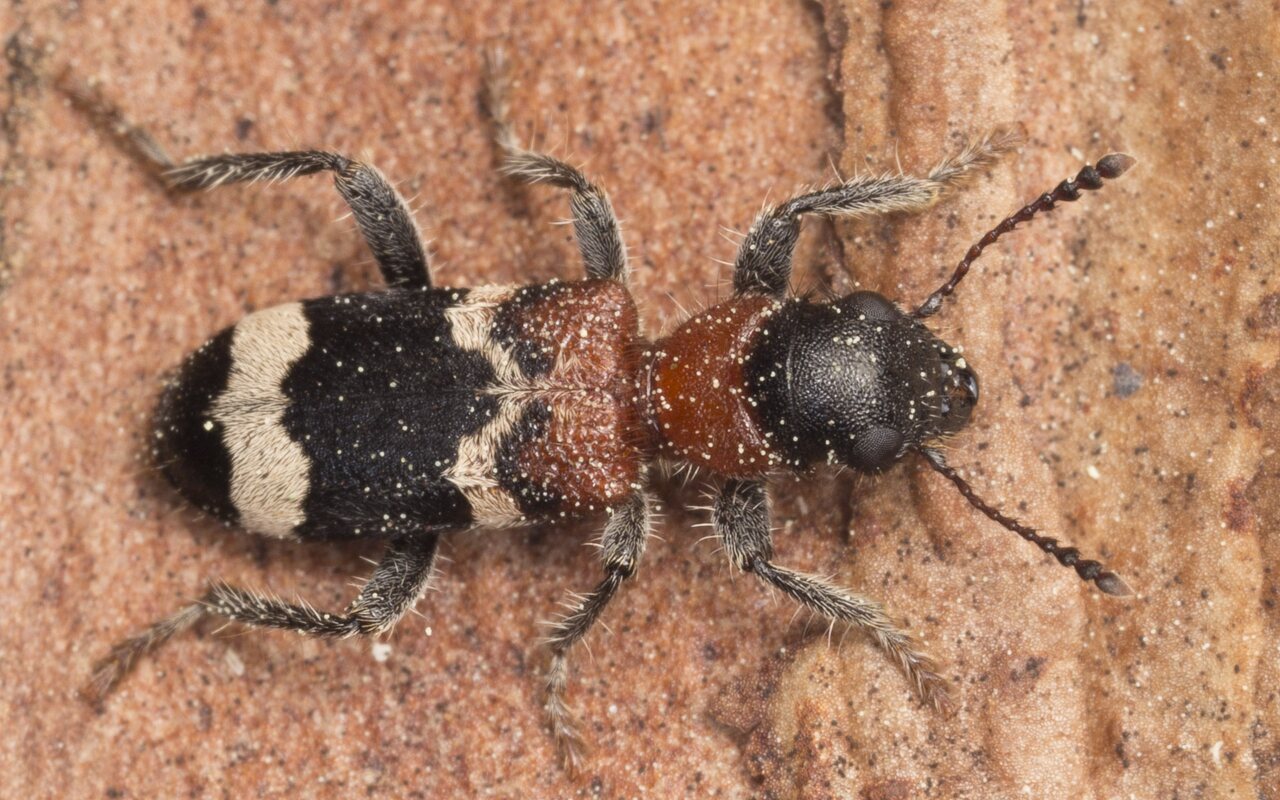
Thanasimus formicarius · paprastasis keršvabalis
- ant beetle, European red-bellied clerid
- Ameisenbuntkäfer, Gemeiner Ameisenbuntkäfer
- paprastasis keršvabalis
- mizgraužu skudrulītis
- przekrasek mróweczka
This is a very widely distributed European species occurring from France east and north to Scandinavia and Asia Minor. The shape of the body and coloration of ant beetles resemble those of parasitoid wasp Mutilla europaea (velvet ant) which is famous for painful stinging.
6-10mm. Head, thorax and base of elytra with long erect fine setae. Head black, as wide as the pronotum. Black anterior to the depression and red behind. Margin regularly curved from constriction to base. Surface densely and quite strongly punctured. Elytra parallel sided or weakly dilated towards apex. Anterior fifth red, remainder black with two transverse bands of dense white recumbent pubescence. With strongly punctured striae at base which may extend further back laterally. Legs entirely black but for the red tarsi. Underside dark with the abdominal sternites and prosternum red.
The adults overwinter at the base of conifers, rarely of deciduous trees. They emerge in the spring and fly to lower parts of trees to hunt bark beetles. The adults grab their prey with all their legs quickly so the prey can't run away. Then the beetle bites between the thorax and abdomen, or head and thorax to leverage out the soft succulent parts of a bark beetle. The whole feeding process takes only about 10 minutes. The clerids can feed on about 3 bark beetles per day for several days. It is interesting that once a clerid begins to feed it almost always finishes the process so it never wastes prey.
Kūnas 7-10 mm. Antsparniai su raudonais, baltais ir juodais skersiniais dryžiais. Galbūt mėgdžioja europinę aksomvapsvę – Mutilla europaea, kurios labai skaudžiai gelia. Grobuonys, sunaikina nemažai kinivarpų.
‥
0 comments
Add a comment